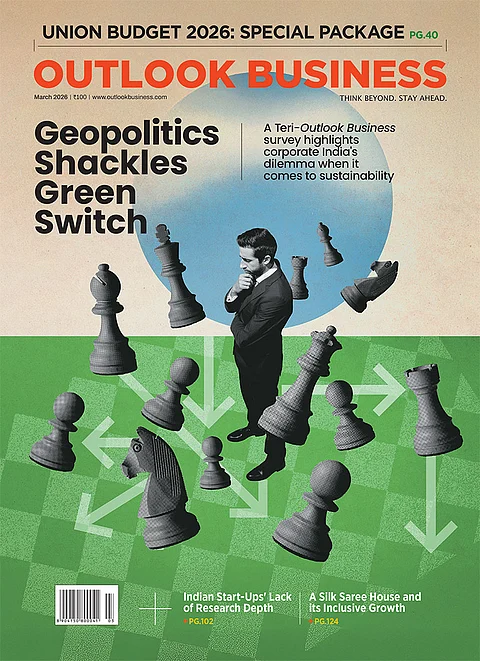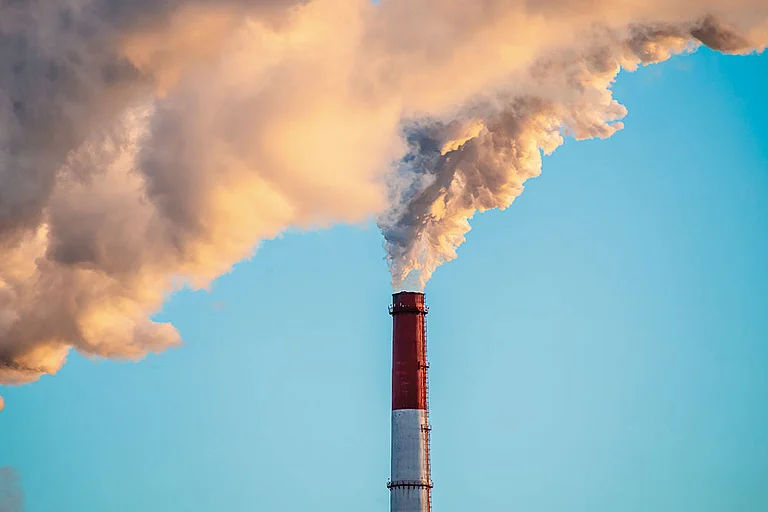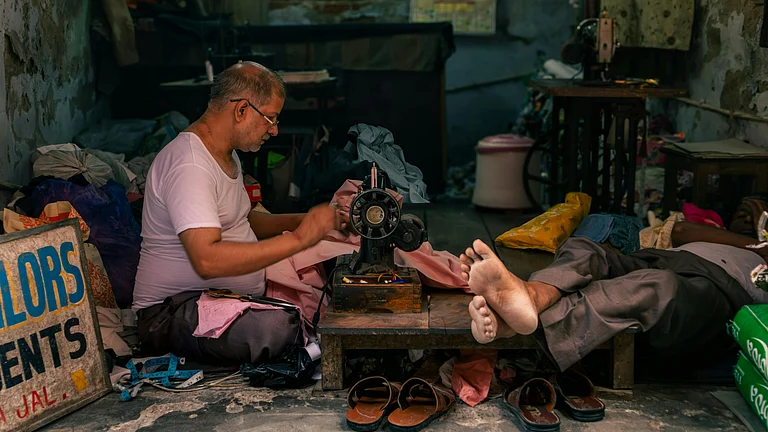In recent years, the politics of human development have become narrowly focused around delivering the long-term goal of arresting global warming and securing global ‘net-zero emissions’ by a certain date. This ‘narrowing of vision’ is linked to what I call the ideology of climatism. Climatism has dangerous implications for societies, especially for countries such as India whose development trajectory and ambition requires them to pursue a plurality of goals.
Towards the end of the 2000s, a change occurred in the way in which future emissions of greenhouse gases were imagined by scientists. Rather than focusing on different emissions pathways — for example, ‘high’ or ‘low’ emissions paths – the argument gained traction internationally that it was cumulative global emissions of carbon dioxide that would largely determine future global temperature. It was thence only a short step from cumulative emissions to the notion of ‘allowable carbon emissions budget’ for any given temperature target.
The idea of a carbon budget had important consequences for policy framing and for the wider cultural imagination around climate change. The budget metaphor stimulated the imaginary of ‘exhausting’ or ‘exceeding’ the allowable emissions. In the mid-2010s, the international policy norm of ‘net-zero emissions’ —or the short-hand, Net-Zero—was born. Net-Zero became a proxy for global temperature, which itself is a proxy for global human welfare. One consequence of this reimagination was that reductions in greenhouse gas emissions now had to be achieved by a specific date, otherwise the budget would be blown and the temperature target breached. This trope of ‘time is short’ began to feed a discourse of scarcity: time is always short, action is always urgent, the time to act is always now.
This framing of time scarcity has significant political implications. The climate future is understood in terms of a ‘point of no return’, after which political action becomes too late. Making time scarce leads to short-term thinking. And if time is short, then any action will do, so long as it reduces emissions. But ‘doing whatever it takes’, without wider considerations of the consequences, has dangerous ramifications.
This leads to what James C Scott calls a “narrowing of vision”, or what I call in my recent book the ideology of ‘climatism’. The goal of human development is reduced to a single dimension: controlling global climate by achieving Net-Zero. The broader context of human development, political freedom, technological innovation, human adaptation and ecological evolution is either marginalised or lost sight of.
One of the antidotes to climatism is to diversify policy goals beyond Net-Zero. Goal pluralism demands that policies are designed, promoted and mobilised that have a direct bearing on locally contextualised and specific social-ecological welfare outcomes. This can take place under the umbrella of the Sustainable Development Goals (SDGs) which foreground multiple social welfare and ecological goals.
Take the example of forests. In 2021, at COP26 in Glasgow, driven by the rush to demonstrate commitment to Net-Zero ambitions, a wide coalition of nations committed $12 billion over the next four years to halt deforestation. But forests are not only sinks for carbon dioxide. And the effect of ‘halting deforestation’ not only protects a carbon sink. For many communities in the Global South, the harvesting of wood from forests provides their income and their energy. There are many different types of low-intensity wood harvesting practices that are essential for the world’s poor, and yet which help maintain a functioning forest ecosystem. Poorly designed, institutionally ineffective, and scientifically uninformed bans on such harvesting practices simply drives them ‘underground’. The livelihoods of many vulnerable people are made illegal overnight.
Another example is decarbonising energy systems. SDG#7 is to “ensure access to affordable, reliable, sustainable and modern energy for all”. About $4.5 billion of investment is needed annually to secure universal access to affordable, reliable, sustainable cooking fuels such as Liquified Petroleum Gas (LPG), yet only about 3 per cent of such funding is currently offered by richer countries. And several European nations such as Germany and Norway are now seeking to ban financial investments in fossil-fuel projects in low- and middle-income countries. Such a ban would include technologies such as LPG cooking stoves. Development economist Vijaya Ramachandran recently denounced the effects of this proposed ban:
This puritanical, one-size fits-all approach is bad for the climate and overwhelmingly leaves women breathing in dangerous smoke from dirty cooking fuels… Policymakers from rich countries might say they support women’s empowerment, but to me they seem more interested in simplistic climate mitigation—and coercing smaller nations to make cuts and compromises—than in improving the lives of poorer women … Pious, performative, broad-brush bans on fossil fuels help no one.
Decarbonisation is therefore about much more than delivering Net-Zero. It is about improving health outcomes for many vulnerable groups, enhancing energy security—both national and local—and widening the range of ownership arrangements of energy services. This perspective has been well articulated by Yemi Osinbajo, the Vice-President of Nigeria.
… the [energy] transition must not come at the expense of affordable and reliable energy for people, cities, and industry. To the contrary, it must be inclusive, equitable, and just—which means preserving the right to sustainable development and poverty eradication…Nigeria and other African countries are committed to a net-zero future…A just global energy transition must include Africa, and it cannot deny our people their right to a more prosperous future.
It is inevitable that there will be trade-offs between different SDGs and between the SDGs and achieving Net-Zero. Not everything can be secured, and certainly not everything can be secured simultaneously and to a prescribed timetable. Win-win solutions can only go so far. Several of the SDGs – for example eradicating poverty (SDG#1), securing quality education (SDG#4), ensuring decent work and economic growth (SDG#8) – will require the expansion of affordable and reliable energy services for billions of people, not least in Africa and south Asia, as Osinbajo observes.
The problem with the ideology of climatism is that exploring these trade-offs is short-circuited by placing Net-Zero above all other goals. Goal pluralism offers a more robust strategy because it allows and finds ways of aligning different and otherwise mal-aligned political interests.
The essay is an abridged version of Hulme’s book ‘Climate Change Isn’t Everything: Liberating Climate Politics from Alarmism’ (Cambridge: Polity Press, 2023).






.jpg?w=801&auto=format%2Ccompress&fit=max&format=webp&dpr=1.0)



















